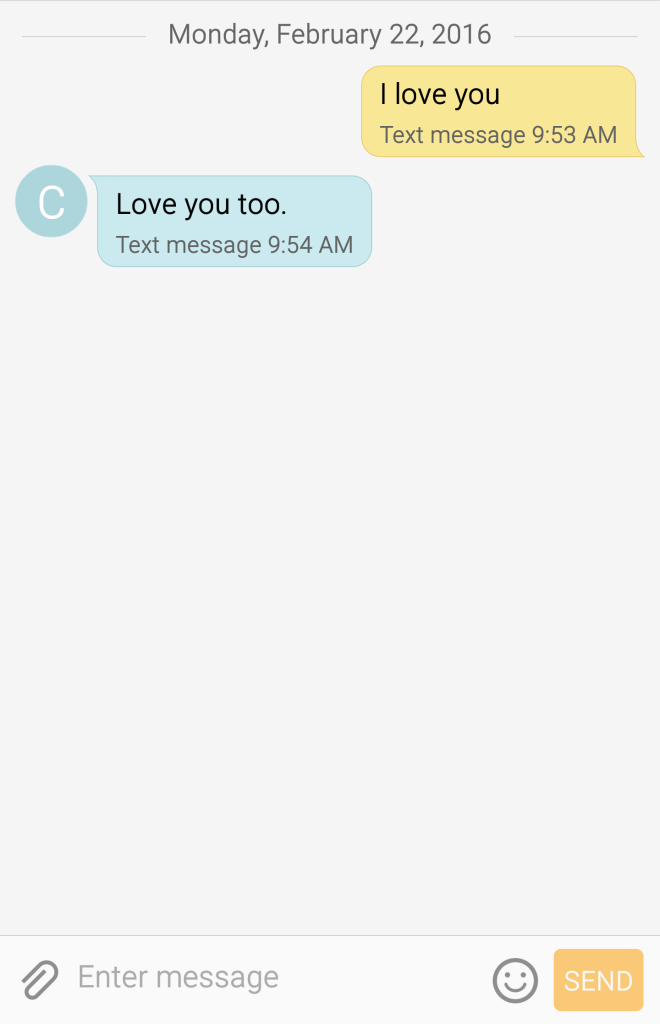Diction has evolved into shortcuts. If there’s a shorter way to say something, chances are it’s the likely candidate for conversation. But how does this affect communication and relationships?
 I started thinking about the difference between “love you” and “I love you” and wondered if one was better than the other. I decided to ask a good friend of mine, Olivia White, music business freshman, what she thought.
I started thinking about the difference between “love you” and “I love you” and wondered if one was better than the other. I decided to ask a good friend of mine, Olivia White, music business freshman, what she thought.
“I feel like whenever people say ‘I love you,’’ it’s like the first time you say it, so it’s very emotional. It’s a very big statement . . . You’re officially stating [what] your feelings towards that person are,” she said. “But when you say ‘love you’ [it’s] more of like, a casual thing. Sort of like, “Okay, we understand the relationship, we understand our [status].”
For some people, it may not make a difference whether or not the “I” is used, but thinking in terms of early relationships, platonic as well as romantic, I was curious if leaving the pronoun out was dependent on how much of that emotion the person felt.
“It’s so tricky at times when you’re just becoming friends with someone,” White said. “You don’t really know an appropriate time to say ‘love you’ to a person.”
Perhaps, early on in a relationship, it’s hard to tell how much to involve yourself. Whether consciously or subconsciously, It seems like in the situations where people use “I” it usually means there’re associating themselves to that emotion. But does that mean it’s more meaningful? Does the “I” matter, or change the word, or make a difference? Perhaps the amount of love being expressed really doesn’t change.
When I asked White if one pronoun changed the meaning of the word love, she said, “It can be perceived differently, but the meaning’s just the same.”
White said that the experience of love was different for every person, leaving the question open ended. What do you think? Does the “I” really make a difference?


Leave a Reply